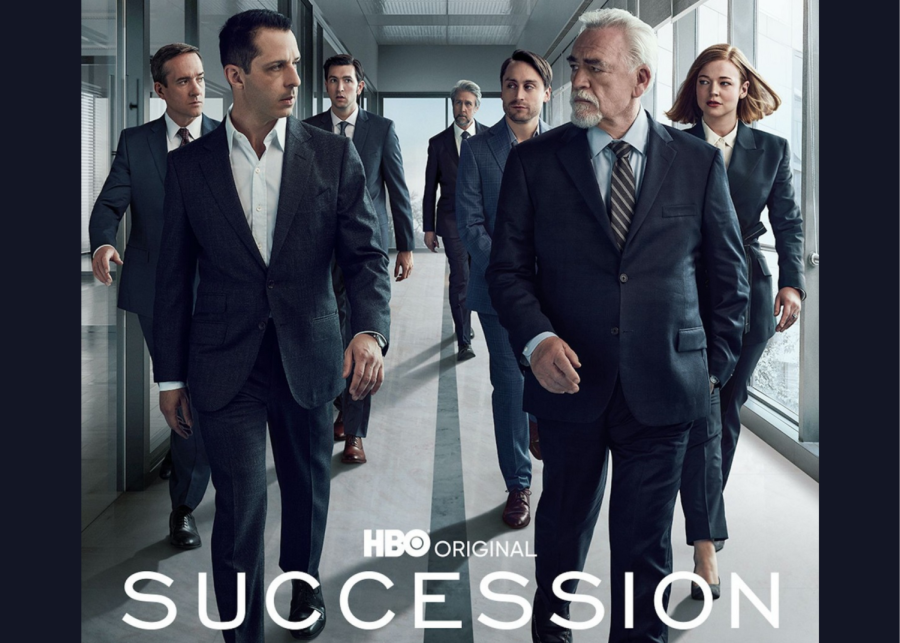Succession Through Shakespeare
Warning — this review contains spoilers.
Adam McKay, the executive producer of record-breaking HBO series Succession, once described the series as a modern King Lear. While arguably the similarities between the play and the show are prevalent, the narrative in Succession functions more like an allegory for how Shakespeare, at large, plays into the modern world.
For example, take the character of cousin Greg. In season three, when a character divide occurs, we see Greg play both sides and never solidify his position. In Shakespeare’s iconic play Hamlet, the character of Horatio functions in an almost identical way. He never directly chooses between Hamlet and the King of Denmark. Through this, we can clearly see the relations between the two characters and the role they play in the overall story.
However, this isn’t the only connection the characters of Hamlet have to the characters of Succession. Hamlet, one of the most important literary figures of all time, shares significant similarities with Kendall Roy. Like Kendall, Hamlet suffers from mental health issues that are important to his character. As both characters’ mental health worsens, the respective families grow tired and eventually start to criticize and look down upon them. We can also see relations with the main character of Shakespeare’s play The Tragedy of Coriolanus. In the play, Coriolanus attempts to gain counsel but fails because of his tension with the tribunes. He decides to lead a coalition against Rome, but is unsuccessful and tragically dies. In season one, Kendall takes on this role of the betrayer in the story. Tension with his father rises as the season progresses when Logan rescinds his plan to retire, shutting out Kendall’s chances of being CEO. This shut-out eventually results in Kendall taking action against Logan to get him out of control of the company at the end of the season.
Logan Roy, the founder of Waystar, which stands as the company at the epicenter of Succession, is a ruthless CEO who prioritizes his company over his own family. His prioritization is similar to that of Titus Andronicus, the titular protagonist of what many call one of Shakespeare’s bloodiest plays. Near the end of Act I, Titus kills his own son for the glory of Rome. This characteristic moment defines his arc for the rest of the play, just like Logan’s decision to betray Kendall at the end of season two. This decision catalyzes all of the following events that transpire in season three.
Both Shakespeare and Succession’s commentary on power and power dynamics are very similar, especially when looking through the lens of Michel Foucault’s theories on the power of the body. In an interview, Foucault — drawing from the theories of Kantorowitz in his The King’s Two Bodies — says, “In a society like that of the seventeenth century, the King’s body wasn’t a metaphor, but a political reality. Its physical presence was necessary for the functioning of the monarchy.”
We see this idea through Shakespeare’s Julius Caesar. The play is centered around a group of conspirators organizing the assassination of Caesar, the leader of Rome, with the claimed intention of forming a democracy and moving away from a monarchy. The play highlights how all the power of an individual [such as the Caesar] is attached to their livelihood and body, and how the genealogy of lineage is contained within the body of the monarch and heir.
Logan Roy also emulates this idea. We see as he gets older and starts showing more signs of serious health conditions, people begin to talk about what will happen when he passes away. When this happens, his power will be moved to the body of the person he chooses as the next CEO, just like how the power of Julius Caesar is transferred to the bodies of the conspirators when they assassinated him. This idea is essentially the core of both the show and the play.
In Succession, the perspectives of the show are limited to just that of the most powerful beings of the company. Much like Shakespeare’s tragedies, where he only isolates those that relate to monarchies and royalty.
The show contrasts premodern monarchies and contemporary firms to emulate the power similarities and convey the modern monarchy through powerful companies. By taking similar narrative aspects and power dynamics to the writings of Shakespeare that relate to monarchies and empires, the show presents the “contemporary empire,” and how these plays that are hundreds of years old relate to our contemporary society and their laws of power.











